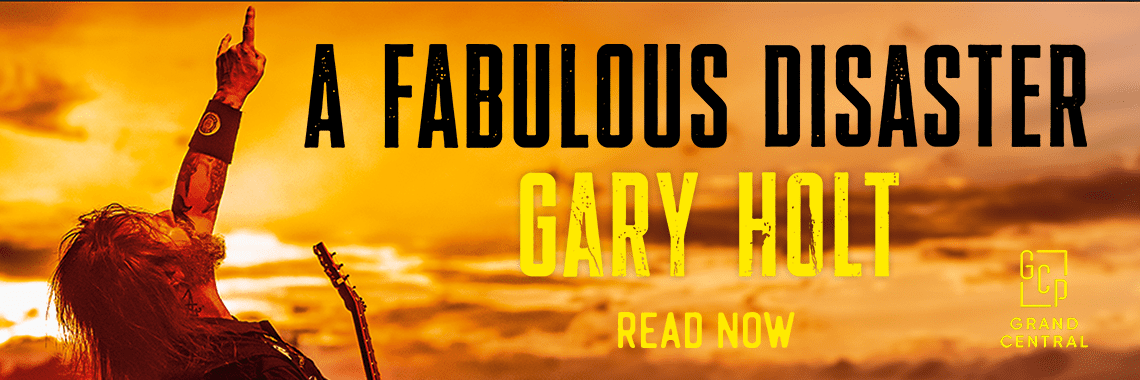
Most so-called ‘life questions’—no matter how motley or mosaic they may look at surface level—can be boiled down to some form of simple, naked disconnection. The questioner hankers for his or her deepest concerns to be appreciated as weighty and potentially ungovernable, as if the sheer knottiness of their trouble is an avatar representative of their intellective depth; their overarching quality as a human being, (consider any Anathema lyric ever as an example.) This is why the instruction of gurus and sages can often be so damned frustrating. They refuse to shelter us from the unappeasable, irritating lambency of truth. Instead they say, “Your body’s a temple, right? Good. So, you must go inside yourself, shut your stupid mouth and tarry at the altar until you have your answer. And don’t ever bother me with this tripe again.” Tell me: who the hell wants to hear that? That answer sucks! Yet a guru, by definition is a person who sheds light. And why do they expend all those precious, eye-watering photons? Well, they don’t do it so that they can merely dictate or pronounce your experiences to you but rather so that you can survey and fathom them for yourself. The answers to our deepest questions tend not only to be simple but to be generally the same. As Bob Proctor once said: “You are the only problem you will ever have and you are the only solution.”
When I first approached my personal music journalism gurus, Ula Gehret and Jeff Wagner, along with current Decibel magazine contributors, the great Daniel Lake, Adem Tepedelen and Joseph Schafer, I recall being torn between the desire to challenge them with serious imbroglios that they’d surely struggle to unknot and a genuine thirst for their guidance. My concerns regarding the ethics and the mechanics of the album review process felt gnarly and impenetrable to me at the time. But, as my subjects’ generous responses began to alight gracefully, one by one within my email’s inbox, I awakened to the realization that all of my preoccupation and gnawing anxieties regarding objectivity and point evaluation systems and so on could be reduced – like a fraction equal to one—to a single egoistic question: who am I to critique the product of someone else’s artistic vision? One simple question splintered into so many distracting and arguably pointless fractals… Jesus. Why the fuck had I wasted these guy’s time?
I was like a soldier from the book of Joshua, a tenderfoot shivering before the daunting silhouette of Jericho. My very purpose lay within those city walls and yet I had no friggin’ clue how to skirt them or to outmaneuver its battery of sentries. So instead of storming the city gate and instead of yielding my arms and capitulating [sensible] and instead of entering the temple and awaiting instruction like I should have done, I chose, (per usual,) to be ridiculously paraphrastic. I decided to nervously march around my quarry’s walls and to bide my sweet time by asking my long-suffering heroes yet one more round of questions. I kept this series simpler than the first, reassuringly pitching it to them as just ‘one more for the road.’ The feedback I received happened to be some of the most enlightening of the entire Mechanix and Ethics (a.k.a. Heavy Meta,) series.
For the sake of holy clarity, I boiled my portion of the chatter down to just two simple questions. Blessedly, after scanning those two inquiries at the fore of this discussion, you won’t hear from me again until the time finally comes to smother this ol’ cookfire and turn in for the night. On this side of the Jordan River my friends, these lions of the craft command the field.
“Great music is tremendously sacred.” —Jeff Wagner
As a professional pundit, how do you find joy, (if indeed you do,) in the review process? Additionally, after sifting through so much material month upon month, year after year, how do you keep your palates refreshed?
Jeff Wagner: How do you find joy in the review process? I don’t think I’ve ever found joy in writing reviews. At one point I found it necessary to communicate my thoughts about albums, and that drive was more about sharing and recommending -or warning- but I never loved the actual process of writing reviews.
Ula Gehret: I think for both Jeff and myself, it’s particularly difficult to stay enthusiastic about hearing [as an example] a new Philippino crust-punk band, or whatever, simply because our full-time jobs are music. Having something be your career and your hobby is particularly tricky…
Daniel Lake: Man, now you’re drilling toward the rawest, most vulnerable feelings I’m having right now about writing… Mark Twain addressed your question in his short piece Two Ways of Seeing a River, when he wrote about the Mississippi. He said, “When I had mastered the language of this water… I had made a valuable acquisition. But I had lost something, too. All the grace, the beauty, the poetry had gone out of the majestic river! A day came when I began to cease from noting the glories and the charms which the moon and the sun and the twilight wrought upon the river’s face; another day came when I ceased altogether to note them.”
Gehret: There are so many times when you’ve a bad day or an unpleasant encounter with someone, and it can’t help but to dampen your spirits—either for someone’s work or even music as a whole. I’ve been in the music industry full-time since 1994, and I’ve had several distinct periods in my life where I would go for prolonged stretches of time of finishing with work and realizing that one of the last things that I wanted to do in the evening was to hear music. Even my old favorites were now somehow inexplicably intertwined with the frustrations of the day job.
Wagner: Entering into a listening experience in a shitty mood is never good. I don’t care what they say about catharsis in the listening experience: I usually need to have some level of positive outlook going into the music room. If I’m feeling terrible for whatever reason, I find it hard to get any enjoyment whatsoever out of music, be it Genesis or Nuclear Death.
Lake: I battle joylessness in a few different ways. I try to remember that a person created this stuff. This goes back to my interest in art as a human endeavor rather than having value only as a cultural contribution. Within the creator’s life, this creation isn’t just another product on the conveyor belt. We hear new music multiple times per day, every day of the year, but each individual artist’s music required weeks or months to conceive and record. Musicians pour time and energy and their own hopes and frustrations into the notes they choose to document. To discard their work out of hand is to utterly dismiss their creative impulse, which I think is wrong. If a person spent time and energy creating this thing, and thought well enough of it to release it to the world, then they heard something inside it that mattered.
Adem Tepedelen: I don’t think you can actively combat cynicism, or whatever you want to call it. I sort of think it’s part of the job description. If you listen to enough music critically, cynicism’s gonna be there. To me, it’s the music that transcends my cynicism that keeps me coming back.
Joseph Schafer: I think a key part of keeping my palate refreshed actually [lies in] not listening to every promo that I come across. There have been times when I’ve literally sampled every single album that crossed my desk, and [it was] miserable. While there’s a lot to be said for inspecting every single pebble in search of a diamond that everyone else has missed—and we miss many, many of them—in the end, diamonds are not so valuable [when] compared to the time a person can lose in pursuit of them. So, it’s important to take breaks, and it’s especially important to listen to music that isn’t metal. I’m no great pop music critic, but I try to keep up with the larger conversations going on between publications that only cover metal in a cursory manner. I also try to continually expand my historical musical knowledge. This is going to sound strange, but you’re going to get more out of an average death metal album if you’ve only listened to, say, Roxy Music for the three days leading up to listening to that death metal record.
Wagner: My palate has widened considerably over the years to include genres and artists outside of the music I’d [historically] been writing about and reviewing for so long, so that inevitably keeps things fresh. Occasionally I would take a day or two away from music, and those brief sabbaticals were usually enough to recharge my batteries. The key for me, really, was to never have a listening session longer than about three hours. After three, I become fatigued and can’t focus…
“Having something be your career and your hobby is particularly tricky…” —Ula Gehret
Lake: I cleanse my palate with some “pretty lame” non-metal music. I grew up listening to adult contemporary pop radio stations, and there’s still a dopey, mildly ashamed place in my heart for a lot of that stuff. Nobody with good taste listens to some of the music I happily jam throughout each week. When I started listening to metal, it was a reaction against that simplemindedness, against those cattle-brained definitions of middle class goals and morality. It helped me burn away the accumulation of social norms, easy ways out and obvious answers. When I find myself dismissing heavy music as rote and uninteresting, I know it’s because, emotionally, I need to return to more melodic forms of expression. Lots of pop/rock critics will tell you that simple music is better music, and while I generally disagree, there’s some value in understanding when simplicity has its place. I don’t always identify with chaos and rebellion. Then, after spending time with cow-eyed love songs and bland inspirational nonsense, I’m usually primed to rage and break shit again.
Tepedelen: I like and actively consume so many different kinds of music that my professional music listening is kind of compartmentalized. For pleasure I generally listen to stuff that’s either old-school metal or not metal at all. I do still find plenty of contemporary metal that I love, but not everything I review falls into that category.
Schafer: Other genres can also give us a barometer of the things that metal misses. Listen to “King Kunta” by Kendrick Lamar and tell me that metal isn’t sometimes losing out by burying its bass tracks so often. At the same time, there’s nothing like Dismember to remind you that most rock music really can’t come close to capturing the feeling of pure adrenaline-pumping ferocity the way a simple HM-2 with every knob turned to 10 can. What we hear as mundane really is spectacular and unique. Remembering that is the key to keeping the flame burning, even though we’ve got to imagine at the same time ways in which it could burn brighter still.
Lake: Sometimes seeking out other people’s opinions provides an assist—if other people are excited about music that isn’t connecting with me, I might be able to use their excitement as a guide toward the music’s positive aspects. This admission’s a little uncomfortable because it veers toward bandwagoning rather than developing my own connection to the music, but I think there’s a middle ground where I can take in outside input, think critically about it, and still make my own decision. If I’m feeling disengaged from whatever I’m hearing, sometimes the enthusiasm of younger, less saturated ears can help set me straight.
Wagner: Thankfully, I think I’ve avoided becoming a jaded, curmudgeonly person due to overexposure [to music]. I’ve seen this happen to a number of people. I do know that the more I was exposed to, the more my own tastes were honed and defined, and the higher the bar was set. That’s a good thing.
Gehret: For me, music is an intensely personal experience. I normally prefer music on headphones rather than over speakers, because nothing irks me more than playing music that I absolutely adore only for someone to walk by and snark, “Do you actually like this crap?” So I tend to keep it to myself, and inevitably, it always returns from those occasional barren stretches and works its wonders on both my mind and my soul. It’s something you fall in love with over and over again, like an amnesiac who continually thinks he’s discovered pizza for the first time.
“…it’s the music that transcends my cynicism that keeps me coming back.” —Adem Tepedelen
Wagner: This probably isn’t the strict examination you’re going for, but my very closest friends—the people I would kill and die for—were all met through my involvement with or interest in music. And I’ve paid my rent/mortgage since 1994 due to employment in various aspects of the music biz… It’s granted me plenty of experiences that would have been unthinkable if I were pursuing some other career path. Even without all that, I would approach music with incredibly deep respect. Great music is tremendously sacred.
Schafer: We’re drawn to [art] because of nostalgia, memories, emotions, and a tactile physical delight. Master of Puppets reminds me of walking my, (now sadly deceased,) dog after school. That was the only time I ever really had any solitude in which to think and search my soul. When “Battery” kicked in, I would run, and the dog, Chester, would run alongside me. I was a pudgy nerd in a too-big tee shirt sprinting next to a residential street, but I felt like we were a pair of hunting wolves.
Now I want music to make me feel unbridled, free and contemplative the way Master of Puppets did (please note: This is distinct from saying that I actively look for music that literally sounds like Metallica. That path’s a mistake. That path is a mere ten minutes removed from Nickelback on Pandora…) Which isn’t to say that I think criticism ought to be wishy-washy navel-gazing ego trips either. I think approaching records in more concrete terms is also necessary… The point I’m trying to make here is that my relationship to this music, like everyone’s, is truly subjective and psychological.
Lake: I don’t actually think I know what objective “quality” really sounds like. I can recognize unconventional songwriting I think, and I can hear performances that sound complicated or athletic, but while I really enjoy listening to [for example] Nails, I’m not entirely sure I can hear the details that make their music worth my time in contrast to other, similar music that might excite me less. Anyway, I keep this uncertainty firmly in mind when I hear new music, because it reminds me that my knee-jerk reaction (if it’s boredom or disinterest) probably needs to be reconsidered because I don’t actually know what I’m talking about.
Wagner: Music’s enriched my life, both intellectually and emotionally, and I can only be deeply grateful for it. Even the shitty music I’ve had to endure and try to avoid, it just makes the great stuff ultimately seem just a little… greater.
And here at last we say farewell to our friends Jeff, Adem, Ula, Daniel and Joseph, (at least within the gunwales of this work). It was a year and a half ago that I approached them with this interview request. I think at least on one occasion I even pressed for a ‘two-week turnaround’ regarding the subject’s responses. Check my brave little smile in the rearview mirror, Chief! Clearly that sort of hustle was entirely unnecessary. I was the dog that got hold of the Hyundai it was chasing and had no clue as to what to do with the damned thing.
In my introduction to this entry, I talked about the reduction of a concept or concern down to the vital, beating heart of its consequence. I confessed that the first 10 or so questions that I asked the journalists featured here (found in Heavy Meta Part 1 and Part 3,) could be boiled down into one central—rather lifeless—query: “Who am I to critique the product of someone else’s artistic vision?” Upon a bit of reflection, it becomes obvious that this question can be boiled down much, much further. The question becomes instead: “Who am I to assert my own preferences?” Or, “What right have I to argue for my own desires?” Or, (and here’s a tune you surely know,) “Who am I, really?”
I marched around the walls of the proverbial city many years without the knowledge that I was doing so. I thought that I was just going to work, beinga good capitalist and simply not enjoying it so very much. I assumed that the boot prints that I was tracing belonged to some wizened, erstwhile pathfinder when indeed they were merely my own silly tread-marks. [You ever heard the expression, ‘Same shit, different day’?] Put simply, I was mistaken. There are switchbacks and old untended lanes to wander down, out from the asphyxiating corset of one’s identity and on into the Jungian pool of the unconscious. The walls of Jericho didn’t succumb to any military might or violence; the Israelites were exhausted and, (comparative to their quarry,) ill trained. Nor did Jericho’s bulwarks buckle due to any sort of trick. Your cleverness won’t gain you access here, friend. God razed those unassailable parapets just as the moon orbits the earth and the Israelites orbited the land of the Canaanites. Who are you? And who is god? Orbit these questions as long as you must. Tear your clothes asunder and weep. But for heaven’s sake, don’t leave Jeff Wagner hanging for a year and a half! He’s done so fucking much for the bloody scene!
Consider the quotes I scatter below as something like a film’s “deleted scenes.” I couldn’t quite shoehorn these remarks into the body of The Penultimate Revenge piece in any sort of natural fashion but I had to have them available for consideration. For whatever it’s worth, when I was struggling with that broader question -i.e. “who am I to critique the product of someone else’s artistic vision?”—it was Joseph Schafer’s response—which you’ll find immediately below- that pointed my toes towards the plateau that I find myself knelt presently upon. The sentiment is so simple, but his words have reprogrammed me very much for the better. Thank you one and all, ladies and gentlemen. Jeff Wagner once wrote that Exodus’ debut album Bonded by Blood ”..was better than good, it was god!” I happen to wholeheartedly agree with him; about Bonded by Blood and most especially, about you.
“…if you’re feeling a 5, give it a 5! You can score it literally whatever you feel like! That’s your right. Albert [Mudrian] gave you that power, and if you don’t trust yourself, at least trust him.” —Joseph Schafer
“I suppose if I tore apart some poor band in a review it might help relieve some frustrations… but in the end it doesn’t really make me feel any better. Well, not anymore…” —Ula Gehret
“I don’t write for musicians, nor do I necessarily aim for fidelity to their musical vision. I write for that guy who, for whatever reason, needs my words to scratch a momentary, tough-to-reach itch. He’s not a hipster scanning for edgy water-cooler talking points. He legitimately wants to immerse himself in music for all the right reasons…”—Daniel Lake
“…we’re talking about describing sound with words. I’d prefer something more impressionistic, in a way. Like, how did this make you feel? What did it evoke, and how did it do that? I don’t want/need a clinical description. I want the writer to offer me something that piques my curiosity.” —Adem Tepedelen
“How do I keep my palate refreshed? By not doing reviews!”—Jeff Wagner







